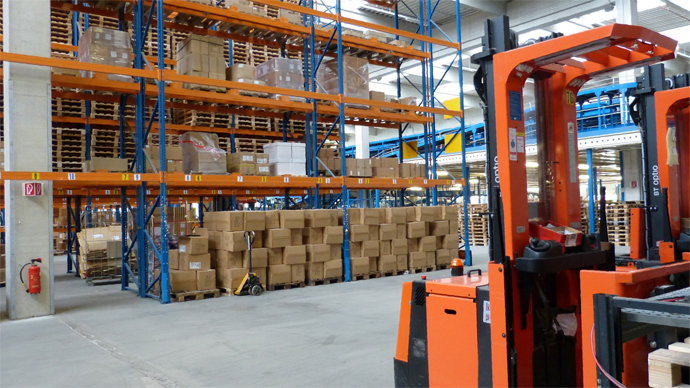How Should Manufacturing Logistics Management Be Done?
← Back
Manufacturing logistics encompasses the management and optimization of warehousing processes, as well as the movement of materials within facilities connected to a production centre. In short, it includes all the logistics processes that take place from the purchase of raw materials to the creation of the product.
Manufacturing logistics encompasses the management and optimization of warehousing processes as well as the movement of materials within facilities connected to a production centre. In short, it includes all the logistics processes that take place from the purchase of raw materials to the creation of the product.
What is Manufacturing Logistics?
Manufacturing logistics is a part of both logistics and production. Manufacturing logistics, as a business term, refers to the planning, management and control of the internal storage, handling and transportation processes of purchased parts, auxiliary materials, raw materials, spare parts, operating materials and other products required for production within a company.
Because manufacturing logistics encompasses all logistical measures, activities and issues arising from the provision of services. Manufacturing logistics is located between supply logistics and sales logistics as a link in the logistics chain.
How is Logistics Management Done?
It is very important to plan ahead for an efficient manufacturing logistics process. Because if several different materials need to be supplied to a particular location at different times, your supply chain must not only be efficient, but also be able to respond quickly to problems that arise.
» Take Time to Make a Solid Plan:
Efficient manufacturing logistics is all in planning. For this reason, the logistics manager who plans ahead avoids delays in the supply chain.
» Always Have a Contingency Plan:
For every element of your manufacturing logistics plan, you need to be prepared for the unexpected. It's also important to know when not to give up on your original plan and when to switch to your backup. It is very important to get support from professionals in manufacturing logistics applications.
» Hire a Logistics Manager with Interpersonal Skills:
It is important to have a logistics manager with interpersonal skills within your company in case the whole process goes smoothly or in case of potential problems. Because, it solves the problem in a timely manner by intervening immediately and providing appropriate logistics solutions .
If your logistics manager is good with people and has solid industry connections, it's an indication that he or she is equipped to save your business from any logistics problems. Whether someone in your business fits this profile or you need to look outside the company, finding the right person for logistics solutions is part of effective logistics management.
» Keep Up With Technology:
In the digital age, there are several ways to automate the logistics process, including tracking and tracking every delivery. These systems take the guesswork out of planning your supply chain by reporting raw data without bias. Keeping your business better informed by using fleet and inventory management software allows you to optimize your processes around the factors that affect your profitability the most.
» Learn From Your Mistakes:
Depending on the size of your company, poor logistics management can cost your company hundreds of thousands of dollars each year. Perhaps the most important thing you can do when optimizing your supply chain is to learn from your mistakes. Have regular meetings with your team. Openly discuss mistakes you've made in the past, focusing on what systems you will install to ensure they don't happen again.
» Manufacturing Logistics Management:
Logistics management analyzes not only logistics issues but also primary production issues in the production environment. Successful manufacturing logistics processes have broad functionality for any investment, such as reducing inventory, increasing demand response flexibility, and delivering the right product at the right time and at minimum cost. It is very important to be able to perform the manufacturing logistics processes correctly.
The basic principle in companies is that each business activity overlaps with business objectives. Logistics functions can be classified as inbound logistics, outbound logistics and manufacturing logistics. These functions are not strictly separate from each other and support manufacturing activities. It can also ensure in-house efficiency of production and other logistics functions. Manufacturing logistics is the main function that can provide this activity. The purpose of manufacturing logistics is to manage the logistics functions that will carry out the planned production activities at a certain time and quality. To achieve this goal, it is necessary to provide synchronization between the material flow rate and the production rate. It is very important that you get support from professionals during the manufacturing logistics stages.

 HONEST
HONEST Eğitim Portalı
Eğitim Portalı Müşteri Portalı
Müşteri Portalı Bize Ulaşın
Bize Ulaşın